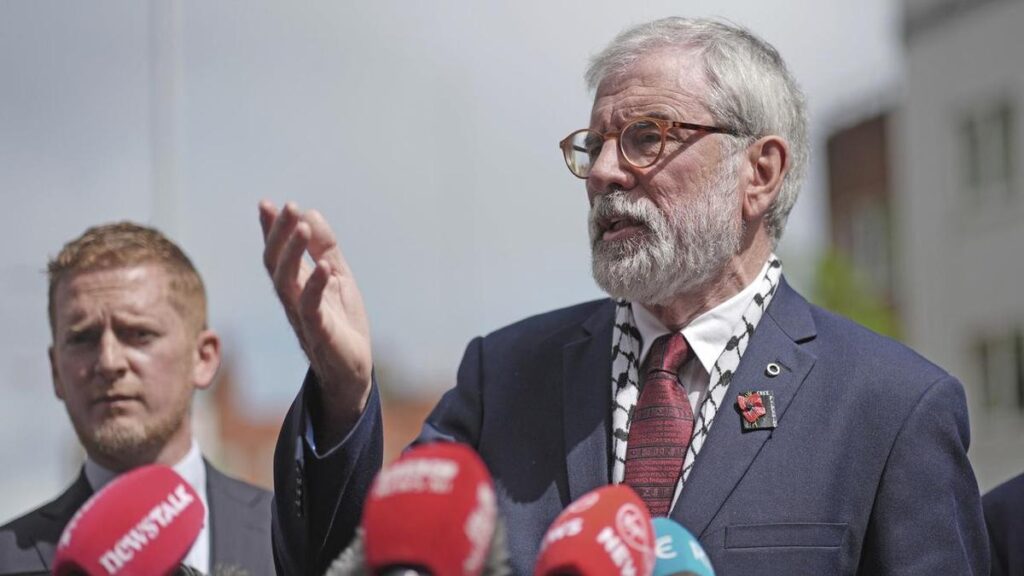Former Sinn Fein leader Gerry Adams has won his libel suit against the BBC over a claim he authorised the killing of an informant inside the Irish republican movement.
A jury at the High Court in Dublin ruled in Adams’ favour and awarded him 100,000 euros ($A175,000) in damages. Jurors deliberated for just under seven hours after the month-long trial before reaching a verdict, rejecting the BBC’s argument it had acted in good faith and in a “fair and reasonable” way.
Adams sued Britain’s public broadcaster over a claim in a decade-old documentary and online article that he sanctioned the killing of Denis Donaldson, a long-serving Sinn Fein official who acknowledged in 2005 that he had worked for British intelligence. He was shot dead at his cottage in rural Ireland four months later.
In the BBC program broadcast in September 2016, an anonymous source claimed the shooting was sanctioned by the political and military leadership of the Irish Republican Army (IRA) and that Adams gave “the final say”.
Adams denies involvement and called the allegation a “grievous smear”.
Adams, 76, is one of the most influential figures of Northern Ireland’s decades of conflict, and its peace process. He led Sinn Fein, the party linked to the Irish Reuplican Army, between 1983 and 2018. He has always denied being an IRA member, though former colleagues have said he was one of its leaders.
Around 3600 people were killed in “the Troubles”, Northern Ireland’s three decades of violence involving Irish republican and British loyalist militants and UK soldiers. The IRA stopped fighting and disarmed after the 1998 Good Friday peace accord largely ended the violence, though small splinter groups opposed to the peace process continued to mount occasional attacks.
A splinter group known as the Real IRA claimed responsibility in 2009 for killing Donaldson. An Irish police investigation remains ongoing.
Adams’ lawyer Paul Tweed said outside court his client was “relieved and satisfied” jurors had reached “the unequivocal conclusion that the subject allegation was highly defamatory”.
Lawyers for the BBC argued that the documentary didn’t claim that Adams had sanctioned murder, merely putting that forward as an allegation alongside Adams’ denial. They also argued the program didn’t harm Adams’ reputation, because he was widely considered to have been an IRA commander and so had little reputation to lose.
“I’ve always been satisfied with my reputation,” Adams said after the ruling on Friday.
“Obviously, like yourself, we all have flaws in our character, but the jury made the decision and let’s accept the outcome, and I think let’s accept what the jury said.”

